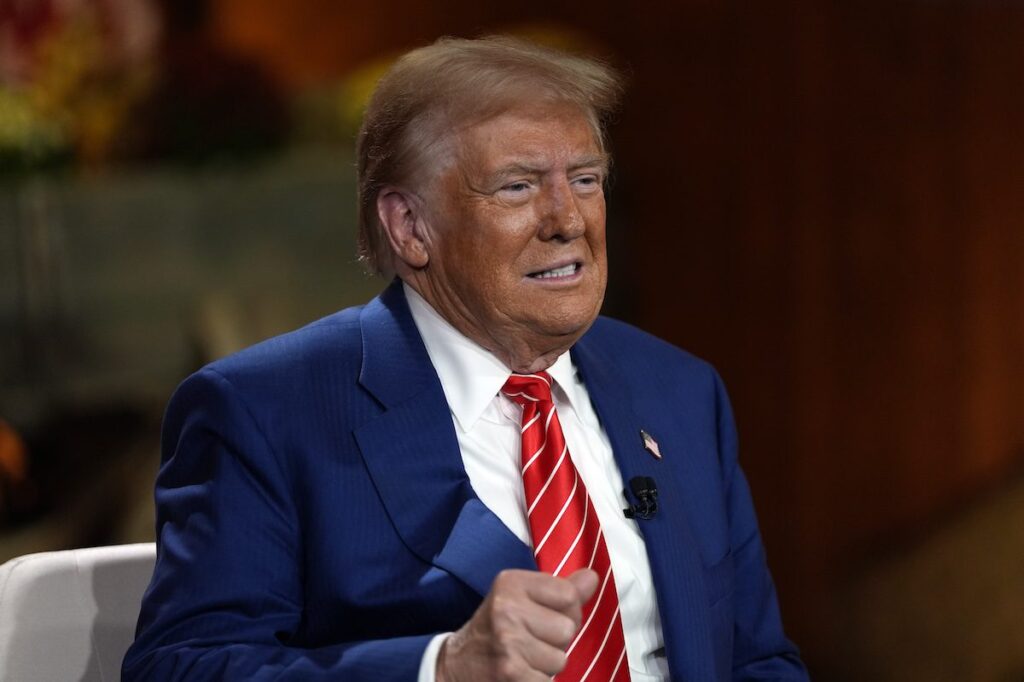Economists warn Trump’s proposed tariffs function as a sales tax, impacting working-class families and risking a trade war that could harm US businesses.
The countdown to the Nov. 5 presidential election sees economists voicing concerns about Donald Trump’s plan to implement broad tariffs. These tariffs could elevate prices on almost all imports and substantially weaken the US economy. Despite limited specifics on his policy proposals, Trump, in his third presidential bid, has clearly stated plans for a universal baseline tariff on US imports.
The proposed tariff rate may vary from 10% to 20%, with a significant 60% tariff on imports from China, as per the Tax Foundation. In a recent discussion with Bloomberg Editor-In-Chief John Micklethwait, Trump even suggested a 2,000% tariff on foreign vehicles, claiming it would reduce inflation and boost US manufacturing jobs.
However, various economic groups and think tanks have reached a different conclusion, arguing that Trump’s tariff plan acts like a sales tax, disproportionately affecting lower-income families. Mary Lovely from the Peterson Institute for International Economics highlights this concern, stating it could quickly diminish US leadership and reduce Americans’ living standards.
A report from the Institute on Taxation and Economic Policy (ITEP) indicates that 80% of Americans earning less than $157,500 annually would pay $2,872 more due to Trump’s tariffs, affecting items like food and electronics. Experts also warn of potential job losses between 50,000 and 70,000 monthly, as reported by Morgan Stanley.
Surveys suggest 68% of Americans favor low tariffs, while only 31% support Trump’s flat-tariff increase. Francine Lipman, a tax policy expert at the University of Nevada, Las Vegas, equates tariffs to sales taxes, burdening lower-income groups more heavily. She emphasizes that this shift in tax burden could push many into poverty, worsening existing economic challenges.
Experts like Lovely draw parallels from Trump’s first term, citing tariffs on Chinese, Korean, and European imports as examples of potential economic impacts if Trump wins. The 2018 tariff on Korean-made washing machines led to higher prices for consumers, as US manufacturers raised their prices to match Korean competitors, demonstrating how tariffs can inadvertently increase costs for Americans.
Trump’s tariffs could also strain American companies reliant on imports, especially from China. As global supply chains are intricately linked, untangling them would prove difficult, Lovely notes. This scenario could increase costs for US manufacturers, making them less competitive and potentially reducing job opportunities.
Lipman and Lovely question Trump’s promise that higher tariffs will bring back US manufacturing. Targeting companies like John Deere with high tariffs on Mexican-made equipment may drive prices up, affecting businesses’ bottom lines. Retaliatory tariffs from other nations could further complicate the situation, impacting the US and global economies. Lipman warns that reverting to an isolationist economic stance is not feasible in today’s globalized world.





